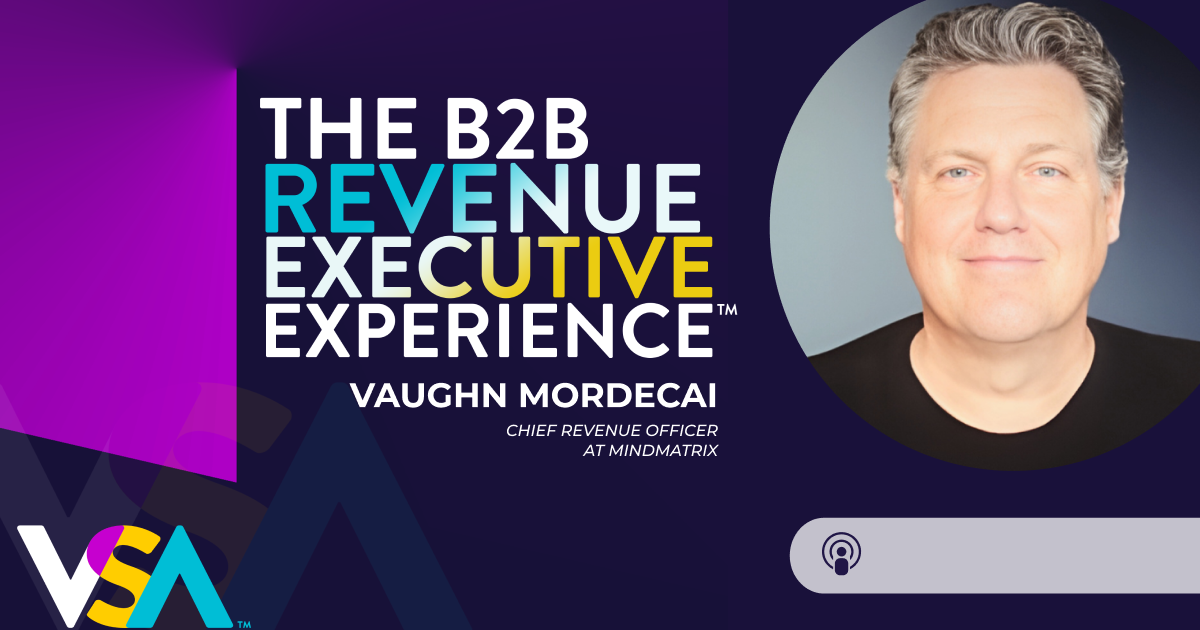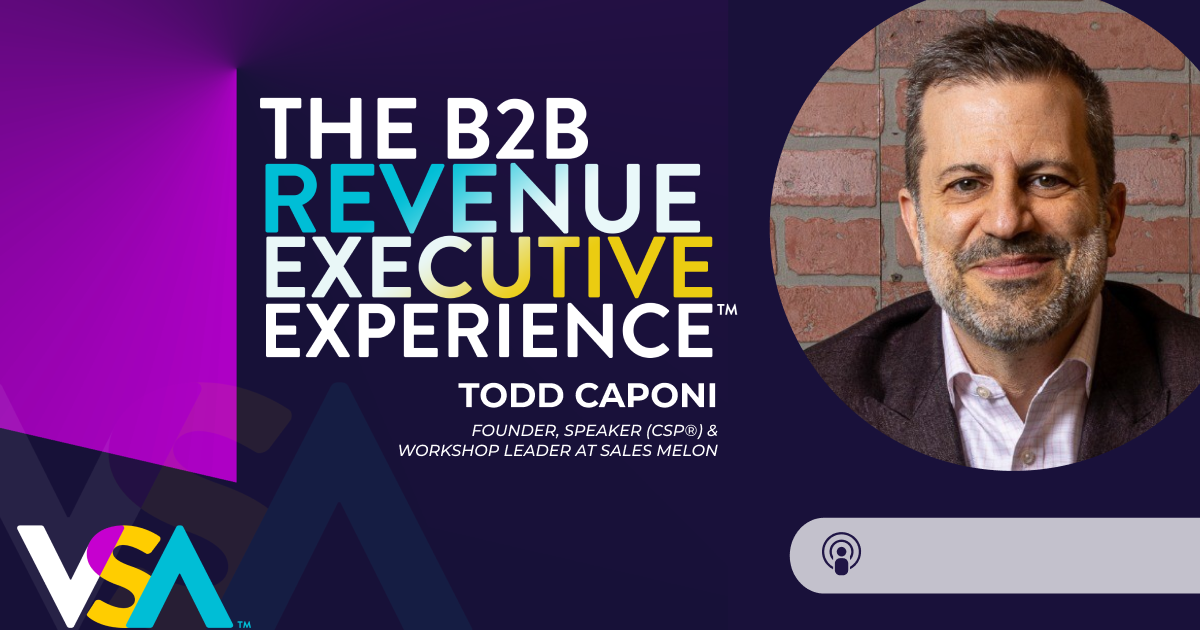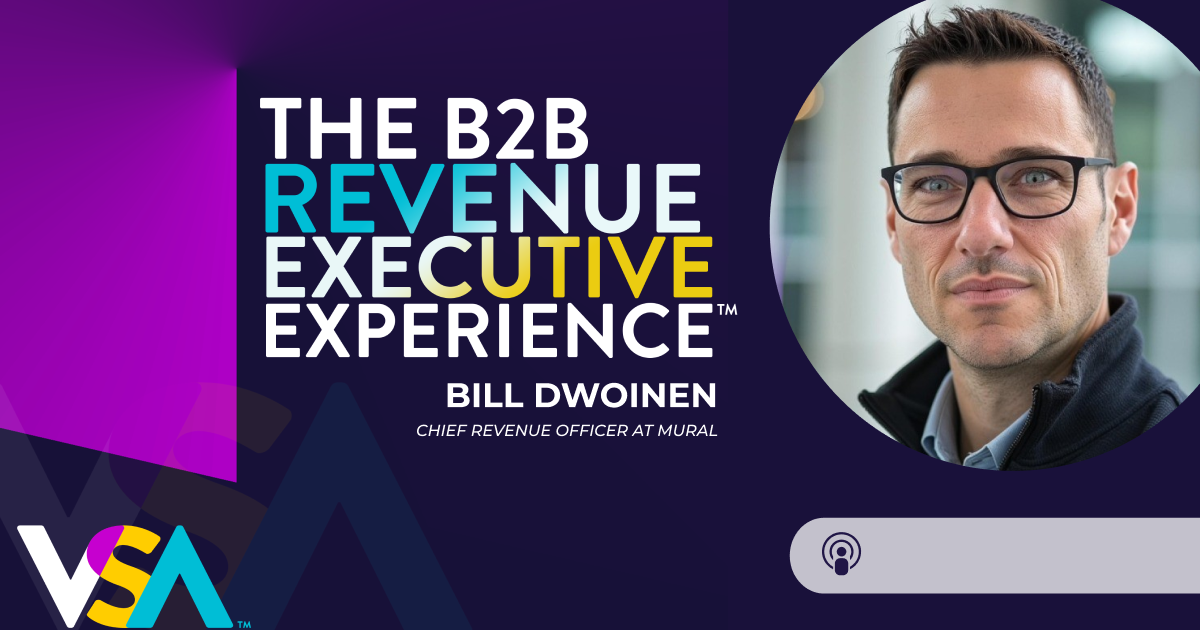Your Employees Aren’t Quitting—But That Doesn’t Mean They’re Engaged

Keeping employees around is not at all the same thing as keeping them engaged.
Creating the right culture, setting goals, and motivating your teams requires so much more.
This can be a challenging topic for executives, especially when they’re focused on the day-to-day operations of a business. They often don’t set aside the time to do this.
Here to help us is Adam Weber, Co-Founder of Emplify (and an avid birdwatcher!).
When we interviewed him for the latest episode of the B2B Revenue Executive Experience podcast, Adam talked about a millennial myth, how to motivate teams as they scale, and how to grow without losing the foundation of employee engagement you’re building upon.
Here’s what we learned.
What’s So Important About Employee Engagement?
Employee engagement taps into something true that most executives, deep down, want to be good at. They understand that the people who work for them are giving such a considerable amount of their life to the work they do—and they want it to be meaningful.
The importance of employee engagement isn’t as hard to prove as it once was. It’s easy to see that it’s a win-win. When leaders can drive engagement, not only does it create a better life for their employees … but it also creates better business outcomes.
“When leaders can drive engagement, not only does it create a better life for their employees … but also it creates better business outcomes.”
ADAM WEBER, CO-FOUNDER of Emplify
Again, we’re not just talking about people who aren’t quitting. Engagement is so much more than that. You want people who show up and lean forward for the business.
The Millennial Myth
There’s a myth in our culture around millennials. Statistics say that they leave their job every 1.8 years. The assumption, then, is that they are going to leave their job no matter what.
It’s not true.
There has to be at least one thing that’s aligned between the manager and the employee, an opportunity for the employee to improve. And that should never end.
The pursuit of excellence in sales is not something you just check on a box. Same with most other roles. If you have an employee that is committed to getting better, you can find great loyalty and drive great performance.
How to Tap Into Each Employee’s True Motivation
As you scale, how do you create an approach and/or structure that motivates an increasing pool of individuals?
If you want to create high-performing individuals, it all happens at the manager level. Each of your managers should be tasked with making sure they know the “Why” of each employee.
“If you want to create high-performing individuals, it all happens at the manager level.”
ADAM WEBER, CO-FOUNDER of Emplify
The “Why” can’t be a sales quota. It has to be something personal that motivates them to bring their best self to work every day.
Tactically, for Emplify, finding the “Why” looks like this: Every year Adam’s team gets together in January for a two-hour, goal-setting session. They work through both personal and professional goals. This builds trust and vulnerability among the team, and it creates unity between the manager and everyone else.
This year, someone wanted to take their kids to Disney for the first time. There’s a person who wants their spouse to be able to stay home. Another wanted to create a job that didn’t exist at the company (and they did it).
Of course, everybody wants a raise and a promotion. But there’s something deeper motivating people. If you can uncover that, at the manager level, you can achieve exceptional results in employee engagement at scale.
The 2 Biggest Employee Engagement Problems While Scaling
There are two major problems that arise as you try to ensure that growth is achievable without losing the engagement you’ve built upon to date.
1) How do you create goals that are stretching?
You don’t want your employees to be “satisfied,” at least when it comes to goal-setting. Instead, you want exceptional performance (that’s also achievable).
To get it, you can’t use the old-school approach of handing out a phonebook to your salespeople with a quota and telling them to figure it out.
Adam said, “We tell our sales folks, ‘We want you to be the CEO of your pipeline. We want you to understand how we arrive at that [quota] number. It’s not just you, but you are responsible. You’re the quarterback.’ “
“We tell our sales folks, ‘We want you to be the CEO of your pipeline.’ “
ADAM WEBER, CO-FOUNDER of Emplify
2) How do you keep making great hires?
You’ve built a culture you’re proud of … but how do you now effectively bring in the right people and ramp them up faster than you ever have?
Right now, across the country, the average time it takes to fill a job vacancy is 30-32 days. When you’re the one responsible for filling those roles (and you’re hiring as often as Emplify is right now), you feel every single one of those days.
Trying to fill those jobs while you still have a quota is quite the task.
One safeguard Adam’s put in place is integrating his “cultural rockstars” into the hiring process. When he’s traveling, they are the people he knows are pushing the culture forward.
In some ways, it protects the hiring person from themselves. You’re at day 28 in a 30-day window and you don’t want to interview more people, so you give other people Yes/No authority. When you’re limping to the finish line of a hiring process, and your cultural ambassadors still hold you to a higher standing in your hiring, you know you’ve built a special culture.
This post is based on a podcast interview with Adam Weber from Emplify. To hear this episode, and many more like it, subscribe to the B2B Revenue Executive Experience.
If you don’t use iTunes, we suggest this link.
Explore More









